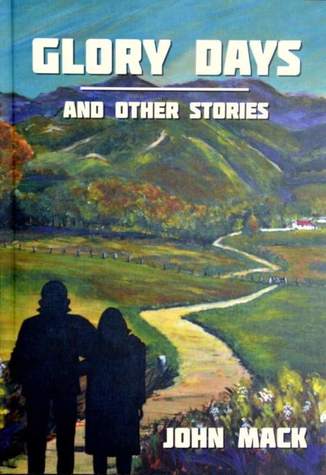
by John Mack
I enjoyed reading these stories, given that I had the occasional qualm or two – which I will refer to further on.
At best, John Mack certainly has the ability to propel a reader onwards, to want to keep on until the story or novella – of which there are two – is finished. Mack builds up the suspense like a sleuth unravelling the next clue thread .
He writes in clear prose, with plotlines that are well thought through, given that in the Hammett-like novella Mike Dunn, Sleuth, the concluding sicko-sex connections between the murdered Harold Withers and the sleazy Polynesian gang are not so clear to me. The obvious connotations in this piece are to the Lundy murders, yet the twist through to the gang involvement perhaps needed a bit more of a back story.
Accordingly, also, his dialogue is colloquial and crisp; his settings – most especially the rural scenes – well depicted.
Mack, then, certainly achieves his avowed back cover aim, as here, “Each story stands alone as a tale with no particular message or function other than to provide for the readers entertainment.”
The topoi of the ten tales are varied too. From country living near Morenawhira (Morrinsville) through to perhaps the ‘best’ and most personal piece in the collection – the realistic World War Two saga, War Bride, the remaining content and concern ranges over fascinations with fast cars; private detectives patrolling and extolling socially tangential methodologies; wanna-be rip-off criminals; the sweet revenge obtained after such criminals’ activities. The trope is generally the underdog winning out in the end, and some sort of street level justice being served, regardless of the moral scruples involved. The tales titled Three Bros; Easy Money; Long and Short; Chronicle of a Hitman; A Town like Taumaranui; Revenge for Mrs Arkwright, most definitely revolve around and in this axis.
I did mention earlier a couple of concerns. One is that there are some typos and confusions here. For example, in War Bride, a certain Mike appears (pg. 262). Up until then and indeed, afterwards, through denouement and climax, this person is non-existent. More, the Contents lists the novella commencing on page 209, when it starts on page 219.
Then, in the shorter story Pongaroa Passing, we come across this sentence on page 43, “Janey had grown up the daughter of her father’s sister who had married an Englishman.” Certainly “a bit incestuous,” (page 53) and I think the reference to ‘her’ father is meant to be ‘his’ father i.e. Tom, the cousin she married.
It would also be good if Māori and Ngāti had the apposite macron, eh. Which leads me to address my wider concern that Mack is often not exactly PC. Polynesians, for example, do not like being referred to as ‘Polys’ – as they are consistently throughout the first novella. So there we sight such statements such as, “the most formidable front office Poly in the city,” (page 159) et al. Again, “the Māori thing,” (page 53 x2) isn't the one, either.
Given that this is fictive entertainment, I also know that the sentence remarking on Captain Cook’s legacy to Aotearoa New Zealand, “Steve wanted to see the statue of the man who had claimed that faraway place for the Empire and given it the values that led to Bill and all the other New Zealanders coming to its aid,“ (page 255), will not sit well with everyone in 2018.
Mack can however twist a tale back toward the politically astute. As in Pongoroa Passing, where the reader encounters an earlier statement of, “Though it was fashionable now for people to say that other people had owned the land before his great-grandfather, he knew in truth it was once long ago as good as empty of all human life,” (page 38). This is somewhat abnegated by the later plot development, whereby, “The iwi were going to get their land back after all,” (page 53).
He can also be socially acute and astute, as in the pithy, “The only good thing about tabloids since they shrunk from broad-sheet is that they are easier to read outside in a breeze. Quicker too, because the intellectual rigour of the contents has atrophied along with the size,” (page 68) from People Actually.
To conclude. These are well-written tales with a fair bit of brio and – in places – a little too much salt.
Tena koe John Mack.
Author: John Mack
Publisher: Little Red Hen Community Press
ISBN: 978-0-473-41888-5
RRP: $20 from author, $US15 (plus postage) from Amazon
Available: Paperback obtainable from author www.johnmack.co.nz and online www.amazon.com and kindle.

 RSS Feed
RSS Feed
